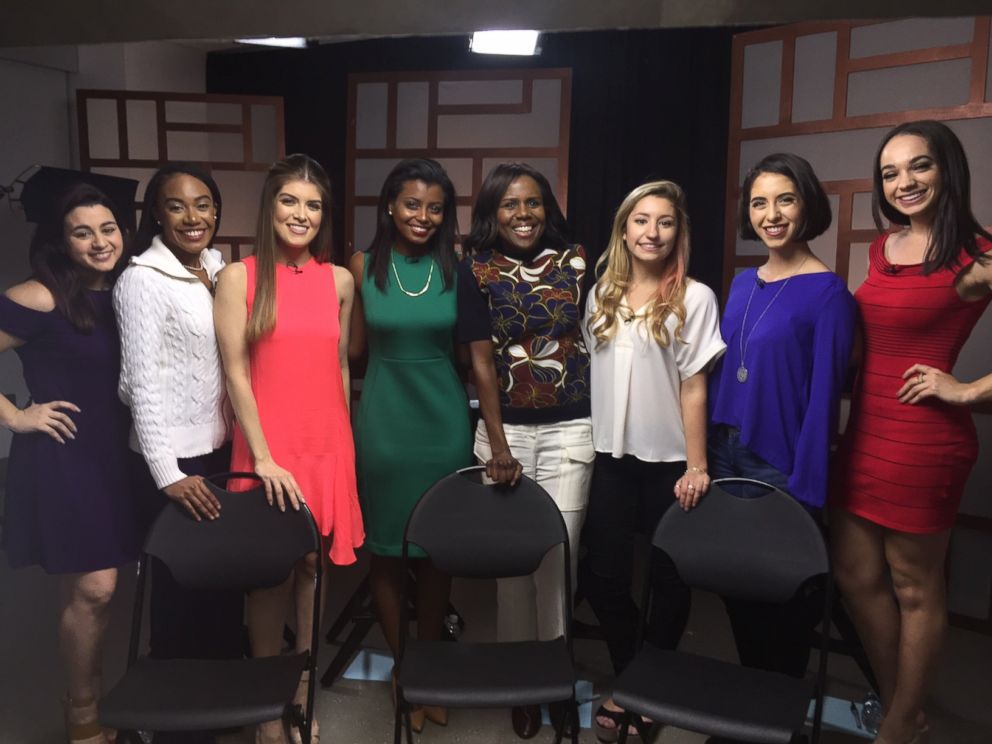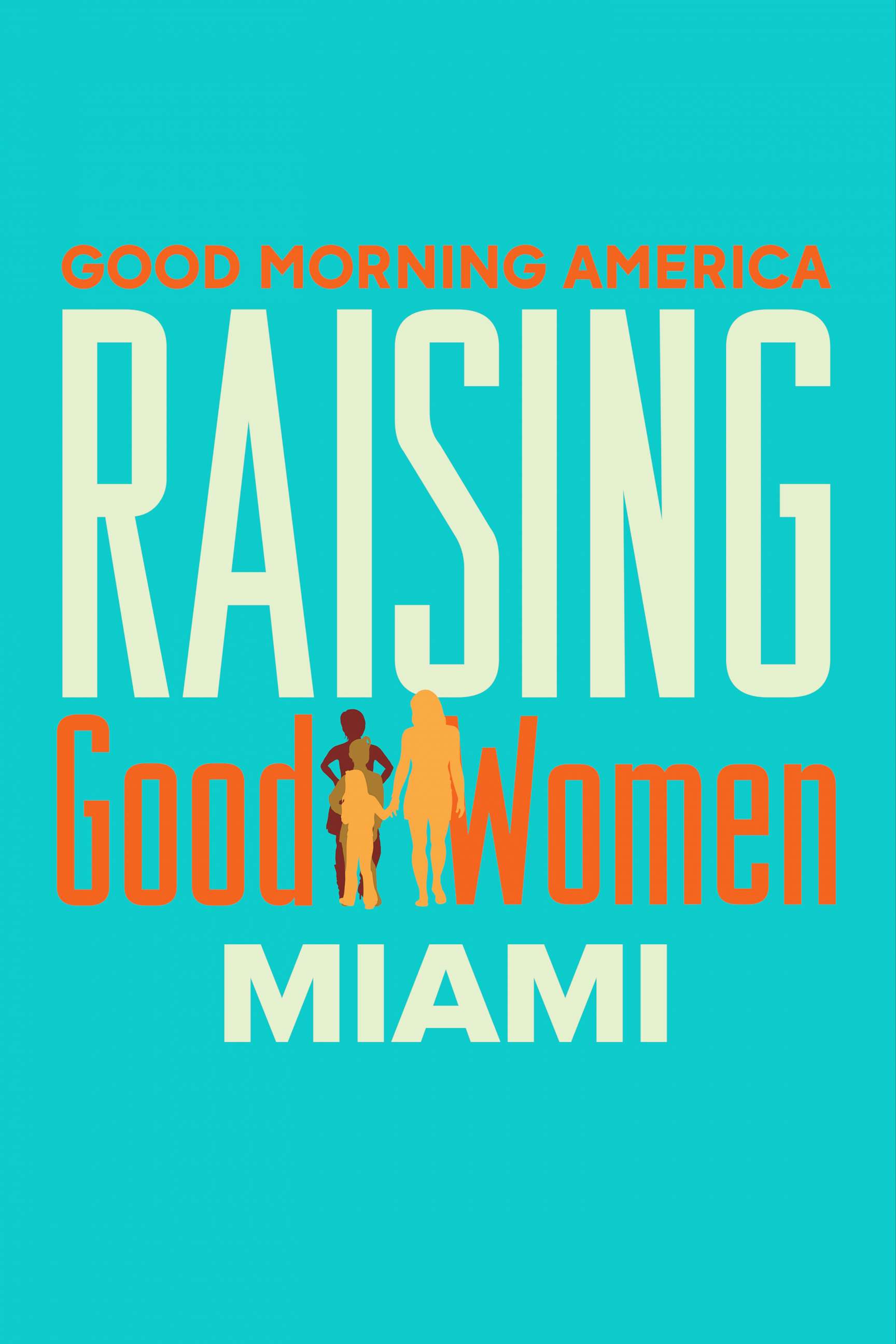College-age young women open up about coming of age in a #MeToo world
Expert tips for women on how to trust men and build healthy relationships.
— -- With allegations of sexual harassment and misconduct dominating the news, a common question continues to come up among many parents: What do we tell our girls? How do we raise smart, strong and empowered women?
"Good Morning America" sat down with three groups of girls and their parents from around the country for candid series of conversations about coming of age and how to empower strong women in the post #MeToo era.
At a gathering in Miami, Florida, ABC News' Deborah Roberts spoke to a group of college-age women, 18 to 22, at Miami Dade College, about what it means to be a strong and empowered woman.

"You feel like nothing can compromise you or your situation,” 21-year-old Lilah said, "And you're strong and firm in yourself."
Words that came up when asked what being a “good woman” meant to the group were: being “confident,” having “empathy,” being “honest,” “genuine and encouraging and compassionate.”
“I wrote 'confident' because the role that women have played in society for a very long time is that we're supposed to be silent and submissive,” Gabby, 18, said.
A federal study found one in five undergraduate women experience some kind of sexual assault and more than 90 percent don't report it, but in light of the #Me Too and Time's Up moments, this generation could change things.
“This generation of women is talking about things that previous generations were sort of afraid to talk about, it was taboo,” Dr. Jamie Howard, an adolescent psychologist at the Child Mind Institute who joined in on the conversation, told “GMA.” “It's not anymore and that tends to be the stuff that makes a big change.”
The women acknowledged important nuances between allegations of sexual assault at the level of Harvey Weinstein and other types of sexual misconduct.

“We have to be wary of having a zero-tolerance policy because there are different degrees of sexual harassment, like, from rape to, like, a hand on the shoulder,” Valerie, 21, said.
A recent report involving “Masters of None” actor Aziz Ansari, in which a woman called him out on social media, claiming he was sexually demanding on a date in 2017, sparked a reaction in the group.
“I don't think that that's 100 percent fair if she's kind of taking a situation that she also took part in and at that time was like, ‘OK, well, there's -- I gave consent for it and it wasn't an issue -- then I don't know,’" Gabriella, 22, reflected.
“I don't think that it should be posted on social media maybe like that,” Hannah, 21, said. “But I think that there's a responsibility on definitely both sides for communication. And that's where the problem lies.”
Ansari issued a statement last month describing the encounter as "completely consensual."
"We went out to dinner, and afterwards we ended up engaging in sexual activity, which by all indications was completely consensual," the statement read. "The next day, I got a text from her saying that although 'it may have seemed okay,' upon further reflection, she felt uncomfortable. It was true that everything did seem okay to me, so when I heard that it was not the case for her, I was surprised and concerned. I took her words to heart and responded privately after taking the time to process what she had said."
Dr. Howard advised the young women to ask themselves how they might act if they find themselves in a bad dating situation.
“What will I do? What will I say? What are the words I can use and have a specific script in mind?” Howard said. “When it comes to more blatant sexual assault, the onus is really on men, that's what we've been talking about.”
Expert tips for college-age girls
Howard shared more tips below for young women to think about to protect themselves in the dating world and the real world to build healthy and secure relationships.
1. Be prepared, not scared.
Sexual assault is prevalent in college: One in five college women experiences an attempted or actual sexual assault, according to a Bureau of Justice Statistics study, and over 90 percent do not report the assault, the National Sexual Violence Resource Center finds. As we’ve seen in the news, this also happens in the workforce. Mental rehearsal is an important strategy for coping with complex stressors like sexual assault. It’s very difficult to cope in the moment, but running through how you would respond in your mind can lay the tracks for an effective response should an assault occur (e.g., what would I say, who would I report this to, etc). When we are mentally prepared for a stressor to happen, we are much less likely to be shocked and exhibit a freeze response, and this will decrease the likelihood that assaults will perpetuate. Being prepared doesn’t mean you have to live in fear; it just means you are equipped to deal with a difficult situation, just like fire drills in school or safety announcements on airplanes.
2. Use social media responsibly, to support other women.
Heavy social media use increases the risk of depression by 27 percent, according to a study from the Child Mind Institute. That same study found that girls and young women are more negatively affected by social media and depression than boys and young men, partially due to the doubled rate of reported cyberbullying amongst girls and women. Use social media to support and encourage one another, and be a responsible bystander—if someone is disparaging another woman, respectfully call her out.
3. Think of men as your equals.
Rather than emphasizing differences, it’s important for men and women to be thought of as more similar to one another than different. This can reduce intimidation because men are thought of as fellow human beings, thereby reducing some confusing power and control dynamics. When it comes to dating, remember that chivalry is icing on the cake, but basic respect is primary. Be willing to walk away from a guy who is disrespectful or otherwise unkind.
4. Have faith in your ability to cope.
Parents may be particularly worried nowadays about young women as they graduate college and enter the “real world.” It’s important that young women bravely pursue their goals and enjoy their relationships with men (friendships, mentorships, romantic relationships, etc), knowing that they can cope with the inevitable difficulties that arise. It’s important not to avoid situations or people out of fear that something will go wrong, and instead have faith in your ability to cope with whatever difficulties arise.




